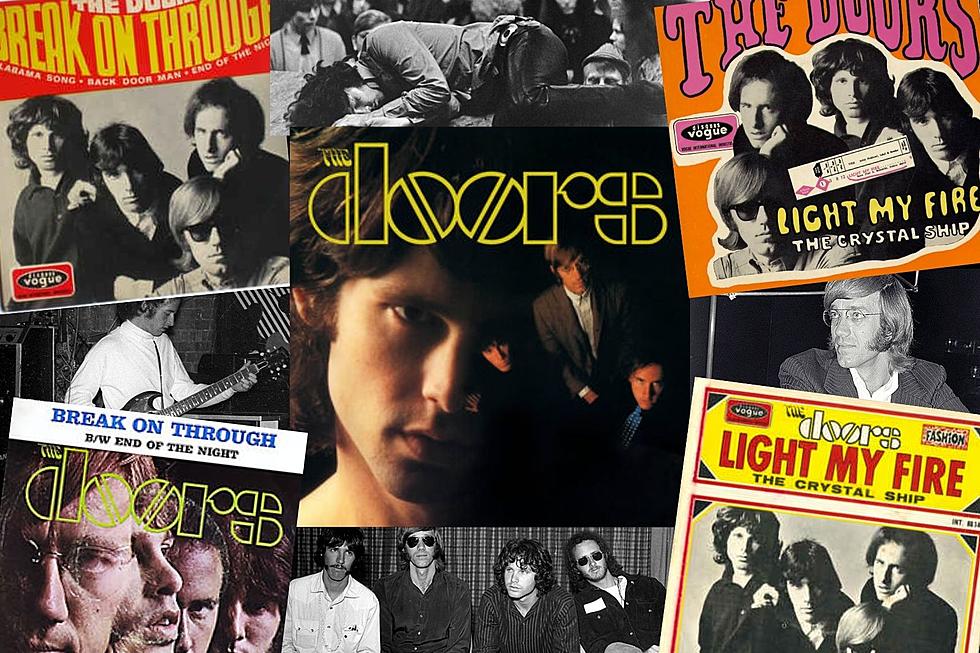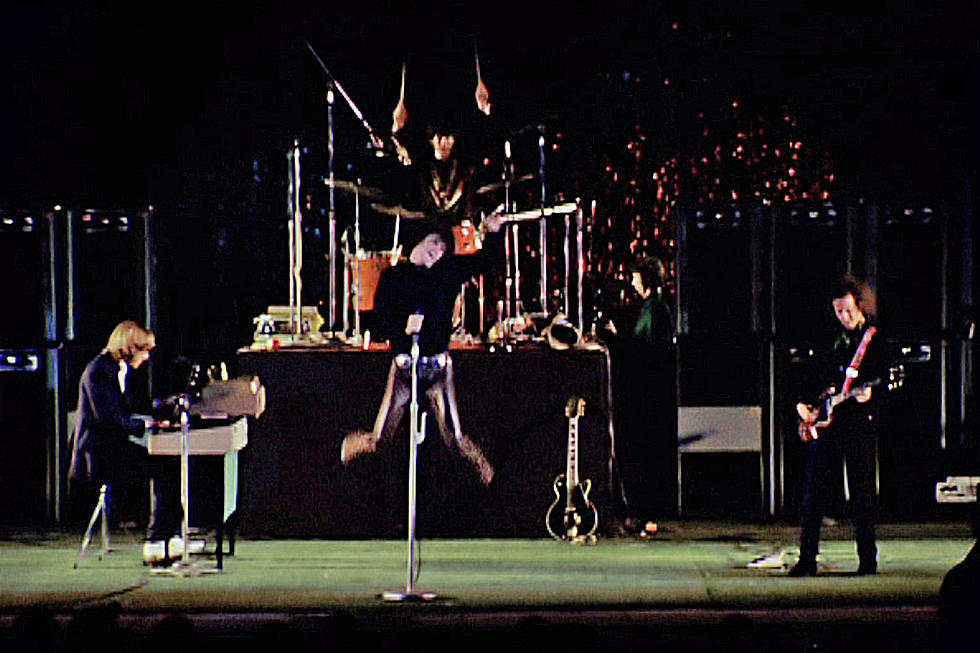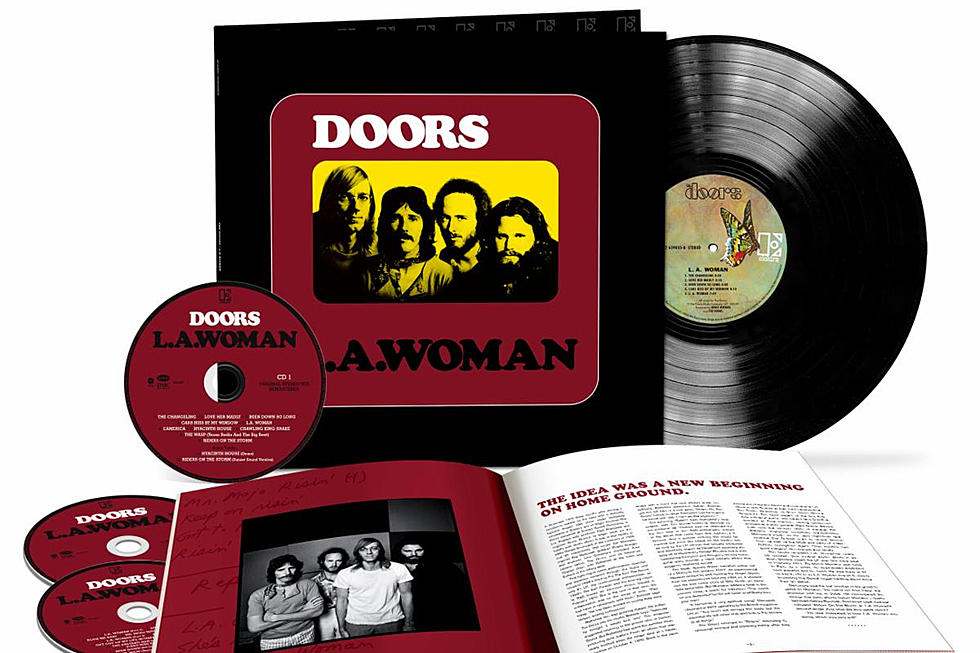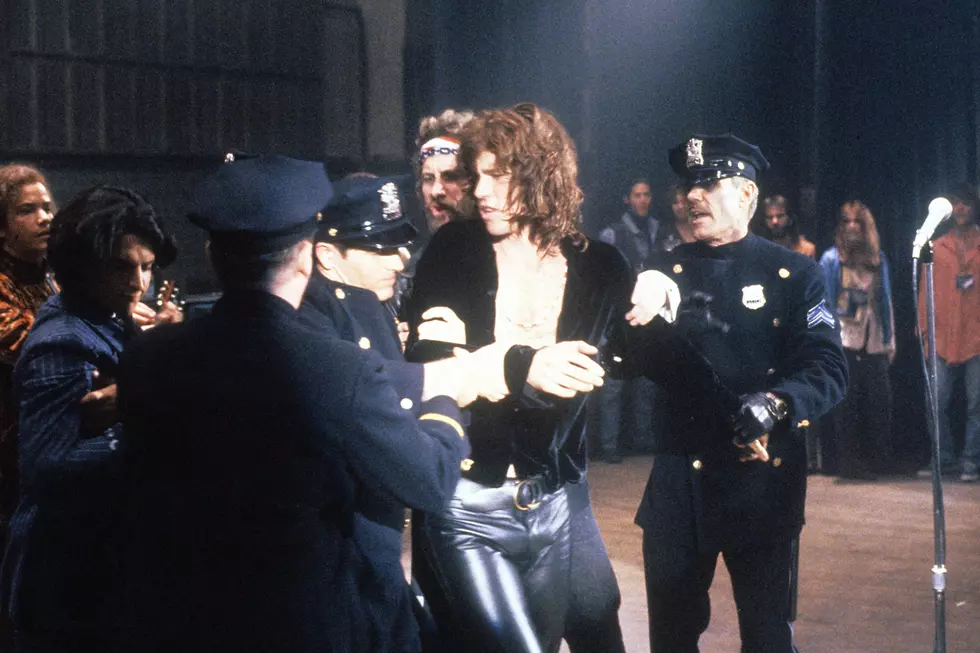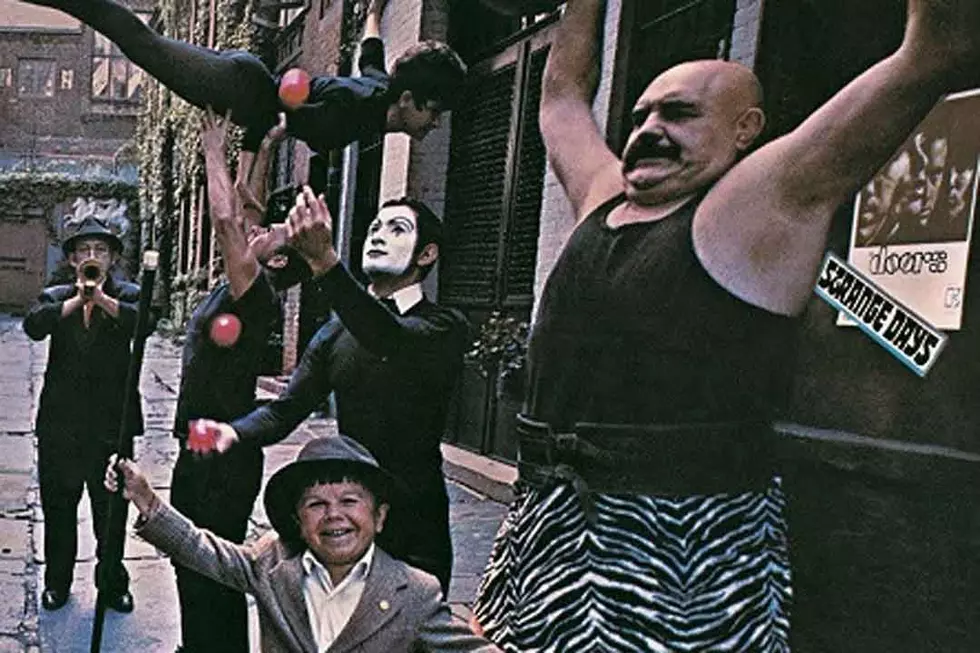
How the Doors Stumbled Into ‘Strange Days’
"Strange days have found us," Jim Morrison sang on the title track of this 1967 sophomore release by the Doors – and it was undeniably true. Strange Days, in many ways, followed the template of his band's self-titled debut from earlier that year, but – for some reason – not its trajectory up the charts.
The songs were, in fact, from the same pre-fame trove, principally written in 1965-66. "Moonlight Drive," for instance, was the second song the Doors ever wrote and rehearsed. They'd even worked up a version of the track for the debut – one that guitarist Robby Krieger once said was "real dark and laid-back, very spooky." They laid the master aside, hoping to finish the track later, and the original was lost. The version on Strange Days represents an entirely new approach, as the Doors began to feel more comfortable in the studio.
Technology played a role in this giant leap forward, musically, as the Doors took advantage of an eight-track recording system for the very first time.
"The first album was a four-track record," keyboardist Ray Manzarek said in The Doors Anthology, "and it pretty much represented how the Doors sounded in person. But the second album was a studio album. We had eight tracks to work with, so we were able to do everything we did on the first album – and have four more tracks for overdubs. We actually began to use the studio as an instrument, and we continued with the third album. We were able to record a lot of unusual guitar and keyboard parts, and overdubbed solos on songs like 'Strange Days,' 'You're Lost Little Girl' and 'When the Music's Over.'" That latter song featured a memorable double-tracked turn from Krieger that ranks among his most brilliant with the Doors.
Stirring musical successes that surrounded them in 1967 ultimately played a role in how far the Doors pushed their sound on Strange Days, they say. "Well, that was a pretty fertile period," drummer John Densmore told Modern Drummer in 2010. "Bruce Botnick, our recording engineer, got a copy of [the Beatles' 1967 album] Sgt. Pepper before it was released, so we listened to that and went, 'Oh my God!' And then we made Strange Days. There was a lot going on musically, so we were listening to everything. And old Miles Davis and stuff like that always fed us."
At the same time, Strange Days hewed to their debut's pattern of surrounding a couple of radio-ready items with songs that challenged sensibilities. The results may have been more adventurous, in a time when that was welcomed, but those moments were balanced out by the likes of "People Are Strange" and "Love Me Two Times."
Listen to the Doors Perform 'When the Music's Over'
Yet Strange Days was less popular. It stalled at No. 3 on the Billboard album chart, in a moment when The Doors was still in the Top 10. Those two sure-fire singles went to No. 12 ("People Are Strange") and the No. 25 ("Love Me Two Times"), failing to match the chart-topping success of "Light My Fire."
Perhaps the arrival of Strange Days, just 10 months after their hugely successful introduction, had come too soon – before fans or the band had time to adequately regroup. Krieger disagrees. "No, we were ready," he told Guitar World. "We had tons of material for the first two albums; the pressure came on the third album [1968's Waiting for the Sun]. We ran out of stuff and Jim was pretty fucked up on liquor by then, so it was hard to write with him and that’s when I started writing more of my own songs. It was also difficult to write while we were touring, so we started writing a lot more in the studio."
Or maybe, as some critics said, their best ideas had already been used. On this, Krieger acquiesces – at least in part. "I’ll admit that 'When the Music's Over' was similar to 'The End' in length and structure, but so what?" he says. "Something works, so you do it again. It’s one of my favorite songs. How can you possibly top 'The End'? What’s left once you’ve fucked your mother and killed your father? The reason it’s my favorite song is my solo. I think it’s my best."
Elsewhere, the Doors pulled off fizzy moments like "Unhappy Girl," which found Manzarek looping his keyboard part backwards. He tried out a marimba on "I Can't See Your Face in My Mind." "Horse Latitudes" went even further, as Morrison read poetry over a scream-filled backing track created by the others as they banged on whatever was at hand in the studio – including pianos, harpsichords and timpani.
"The funny thing was, as we were listening back at full volume and Jim was reading, the guys from the Jefferson Airplane came straggling in – high as kites, of course," Robby Krieger recalled in a Guitar World interview. "They stared at us like we were out of our minds, but we just acted casual and said, 'Oh yeah, this is one of our songs."
Listen to the Doors Perform 'People Are Strange'
Meanwhile, their experiments with the Moog synthesizer – notably on the title track – predated more famous excursions by the likes of Emerson Lake and Palmer by years. The instrument, however, proved to be an unwieldy beast. "A guy came down with his set up," Manzarek said in The Doors Anthology, "and it was totally insane. You had to live with that instrument to be able to play it." The Doors also began augmenting their sound with additional session men, including bass and brass.
All of this experimentation meant that their late producer Paul Rothchild's presence grew proportionally. "The second album, when we actually had a budget, Paul really got involved in the sound," Krieger told Guitar World. Eventually, a claustrophobic perfectionism would drive a wedge between Rothchild and the Doors – but that was still several years off, as the Doors recorded what would be their swansong with Morrison, 1971's L.A. Woman.
For his part, Rothchild has tabbed Strange Days as the best thing the Doors ever did. "Significantly, it was also the one with the weakest sales," he said. "We were confident it was going to be bigger than anything the Beatles had done. But, there was no single. The record died on us."
Not exactly, of course. As the Doors' – and their doomed frontman's – fame grew, so did the critical re-evaluation of Strange Days. Eventually, it would achieve platinum sales, but long after the Doors had moved on to other projects.
Even today, Densmore still counts Strange Days among his favorite one or two Doors albums because, as he told Elsewhere, "we got more relaxed in the studio and began experimenting and having fun."
Doors Albums Ranked
More From Classic Rock Q107


